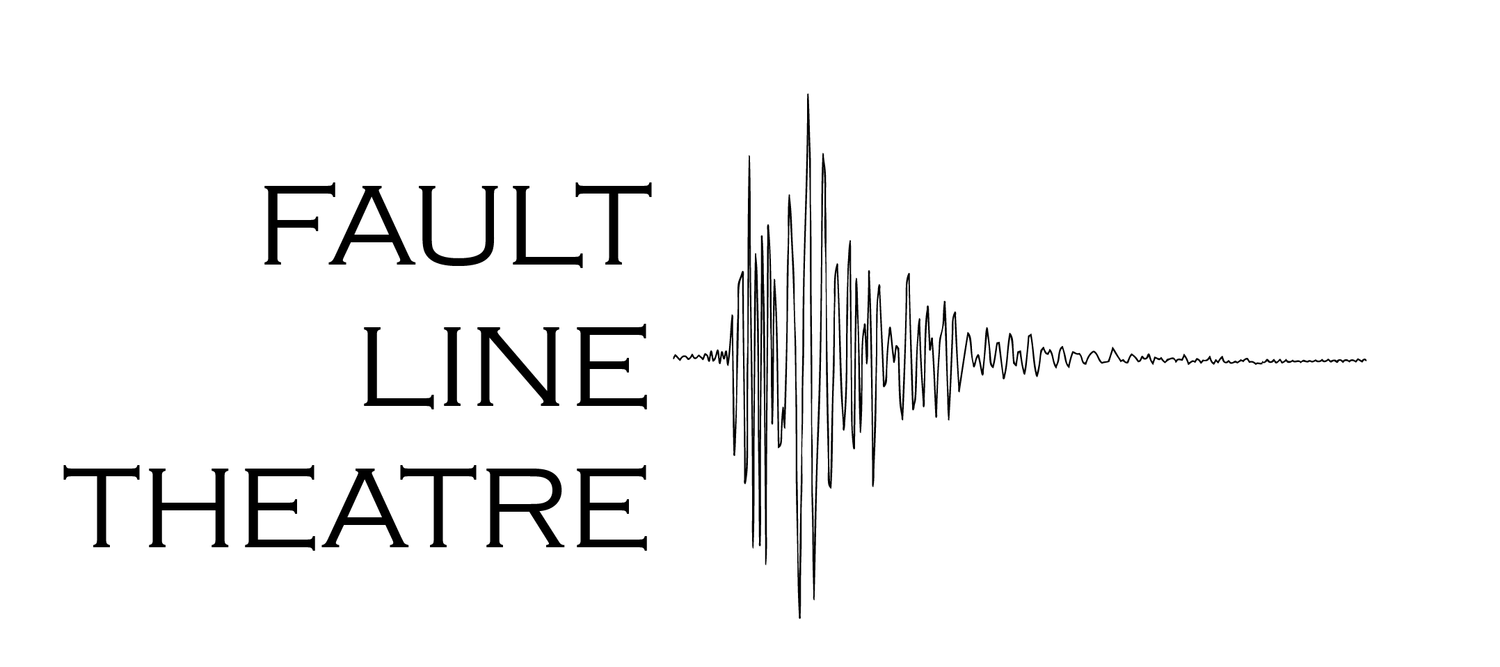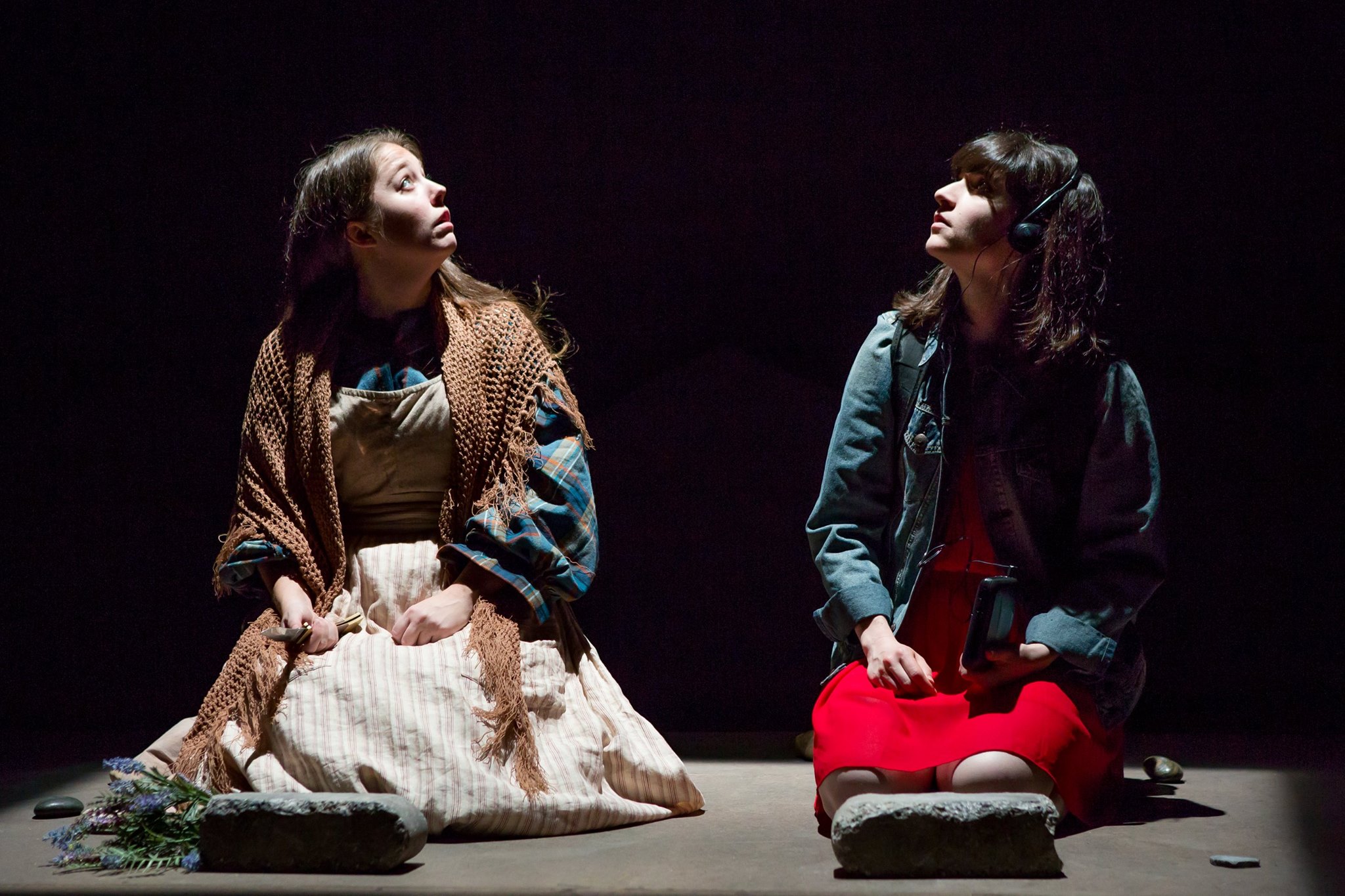PXP is an awesome blog published by the Theatre Development Fund aimed at people new to theatre, particularly young adult audience members. We love the work they do to keep theatre accessible and unpretentious. Additionally, they encourage audience members to submit responses to shows. Selected responses are posted to their blog. Justin Joyce wrote a beautiful piece on his experience seeing our production of Bekah Brunstetter's The Oregon Trail. It's this kind of personal connection that makes the theatre a magical place.
The Oregon Trail - A Little Too Close To Home
By Justin Joyce
What's it about?
Is there a video game you were obsessed with as a kid? You would play it and play it. Now, you rediscover it years later and you pick up right where you left off, reliving the better days of your childhood. Suddenly, you realize that your childhood was so much better than being an adult... but your childhood sucked too.
That's the situation of Jane when she decides that she is going to continue on The Oregon Trail.
What'd I experience?
Enter Name
>Justin Joyce
Enter names of your wagon-mates.
>Just me, thanks.
Ok. You have a series of options. You can:
A. Close this page and not finish this article.
B. Start on the trail.
C. Feel personally targeted by the play you're seeing.
What would you like to do?
> C.
Ok. Imagine that you are going out to see a show. Your expectations for said show are that it is an Off Broadway show based on the video game The Oregon Trail. Initially, you're expecting that it will be about someone playing the game, with some attempt at making the player's drama coincide with the drama of the people on the trail.
Then, you find yourself face-to-face with the main character of the show, and realize that everything that is terrible for this character (that the Voice of the Game narrates about from above) is a little too close to home. Part of it is the emphasis on how the character has enough privilege that her family can afford to send her college without need for loans, and all the debt that goes with that. It gets worse when the narrator describes how she got a "useless degree" in creative writing (poetry for main character, but it's just general writing for you) because she had enough privilege to waste her family's money on something like that. So now your general anxiety about how acutely you're wasting your life is being pushed just a little bit further, as you've somehow managed to see the one show in NYC that seems to poke fun at your insecurities.
Next, you can:
A. Talk about the depression.
B. Ignore the depression.
C. Eat spaghetti.
What would you like to do?
> A.
Ok. Perhaps the worst part of it is the fact that the character's greatest struggle is such a dumb concept to describe for anyone who has had life handed to them, but you recognize it really well. The way they describe this strange sadness and crushing pain that sits over them fairly constantly, and you're squirming in the audience because they're just a few words off from the way you've always described it. Yet, you see that reflection of yourself in the way she jokes about killing herself, because you remember being there... and are still there sometimes when you joke about all the ways you could die right now, but you don't know how serious you are about it. Sometimes you just say it because after years of talking that way, it is just an automatic response. Other times you really are thinking about it, but those thoughts fade away too quickly for you to ever ask 'why?'
Also, there's the plot line set during the actual Oregon Trail about how damn near impossible it is to really move on from the death of a loved one, and, to be honest, that's a whole other can of worms you're not even gonna open right now.
Now, you can:
A. Continue on the trail.
B. Continue on the trail.
C. Continue on the trail.
D. Continue on the trail.
What would you like to do?
> B.
Ok. But it isn't all bad. Despite how tragic the scene is, it's hilarious putting the pieces together when you realize that they're gonna make the "[Blank] has died of dysentery" joke, because that's the big quote everyone remembers from the game. And the show did keep you laughing most of the time, at every nonsensical turn of the dialogue between the characters, you were right there, being jerked around by the non-sequiturs and jokes they rapid-fired at you for most of the show.
And, in the end, you were reminded of that one thing you learned a long time ago, but it was nice to see other people reflect the same mentality: it doesn't get good. When it's bad, it honestly never gets good. When people tell you that "it gets better", they think that that means that things get good again, but that's never been what you've experienced. It gets better, yeah, but it doesn't get good. And that's pretty okay. Because lots of people are never good, just getting better.
Sometimes it just takes a good story to get you through the next day. Maybe it's a video game or a book or a movie, a tv show, a podcast, a sock puppet... it doesn't matter. Eventually you find that end screen. And you can say to yourself: I didn't get attacked by Indians. I didn't drown fording the river. I didn't starve to death. I didn't overheat.
I didn't die of dysentery.
Once you get to that point, it's nice to look forward and see the next green light, move forward, until you see the big accomplishment...
CONGRATULATIONS! YOU HAVE MADE IT TO OREGON!

